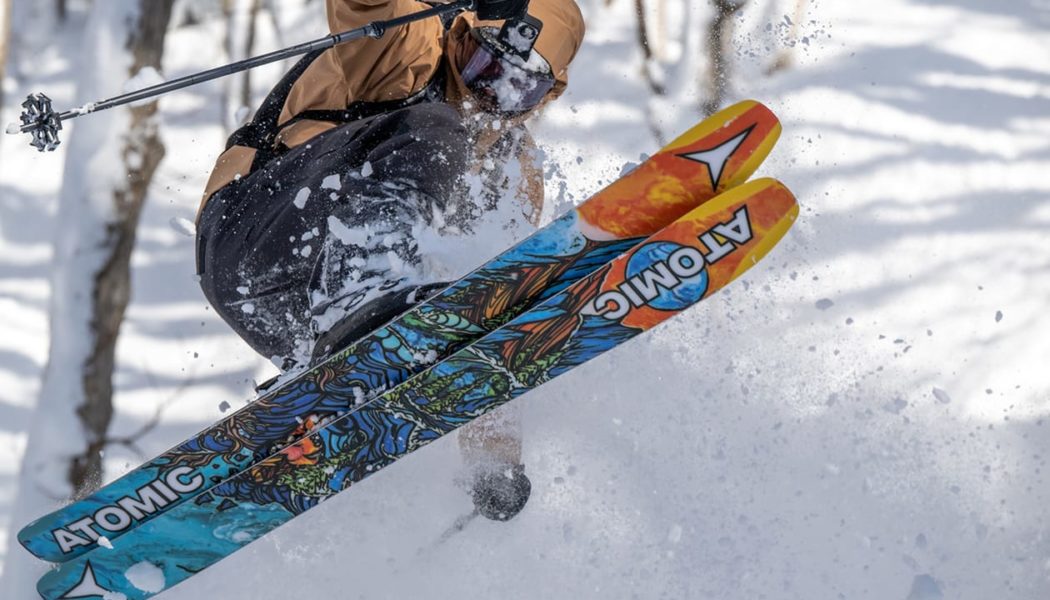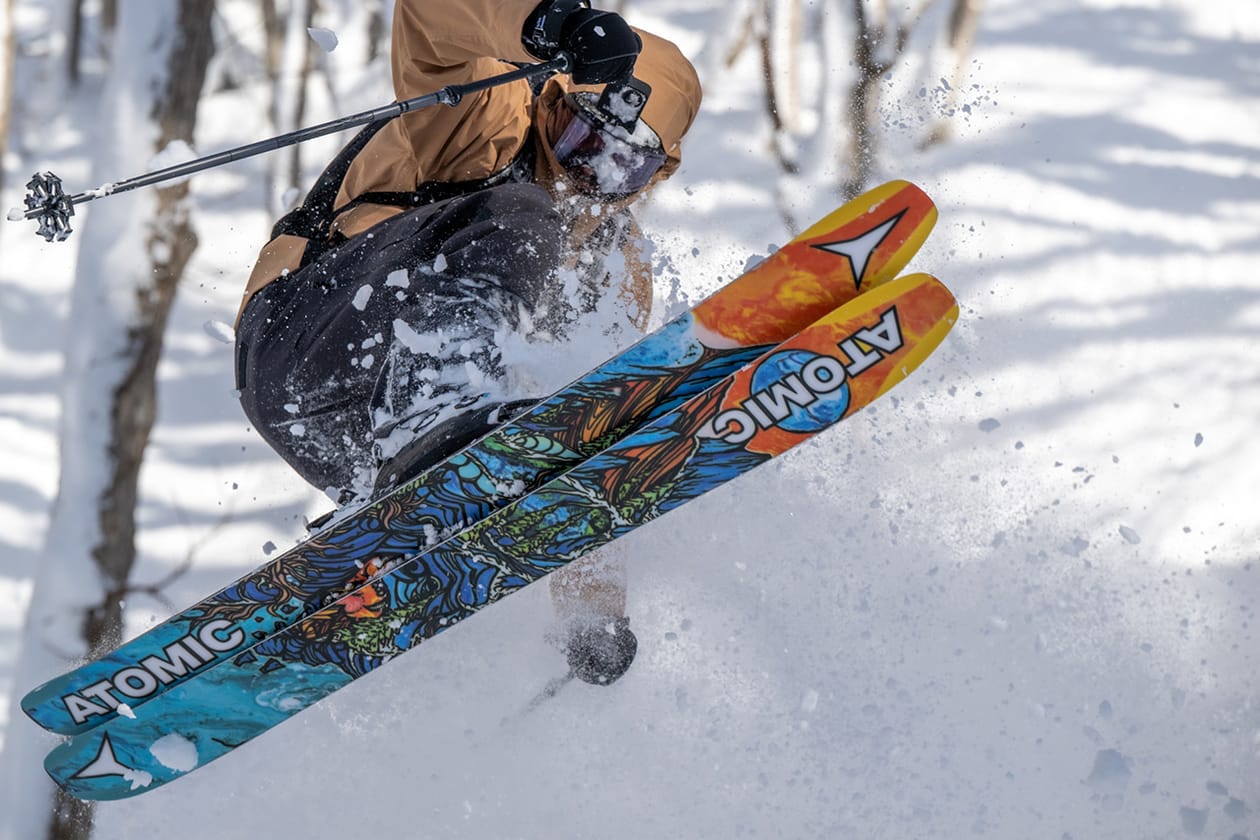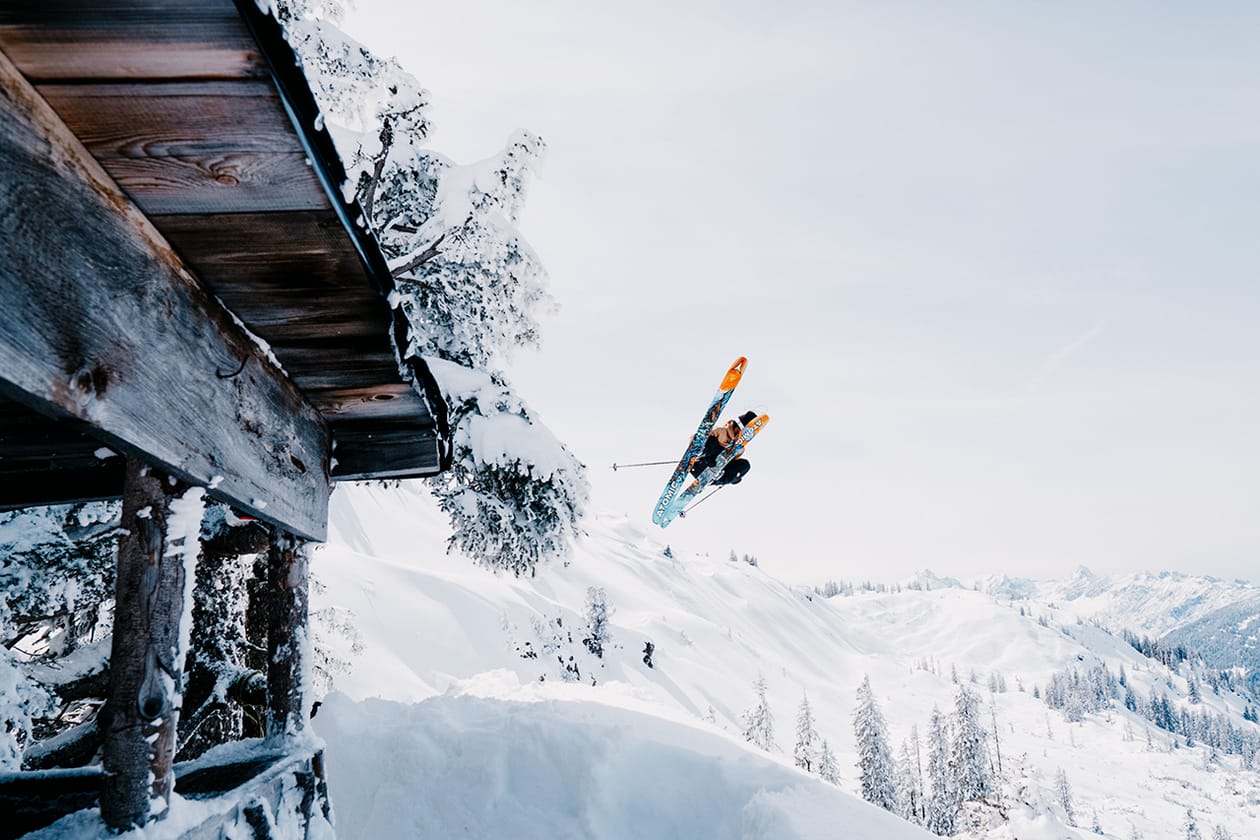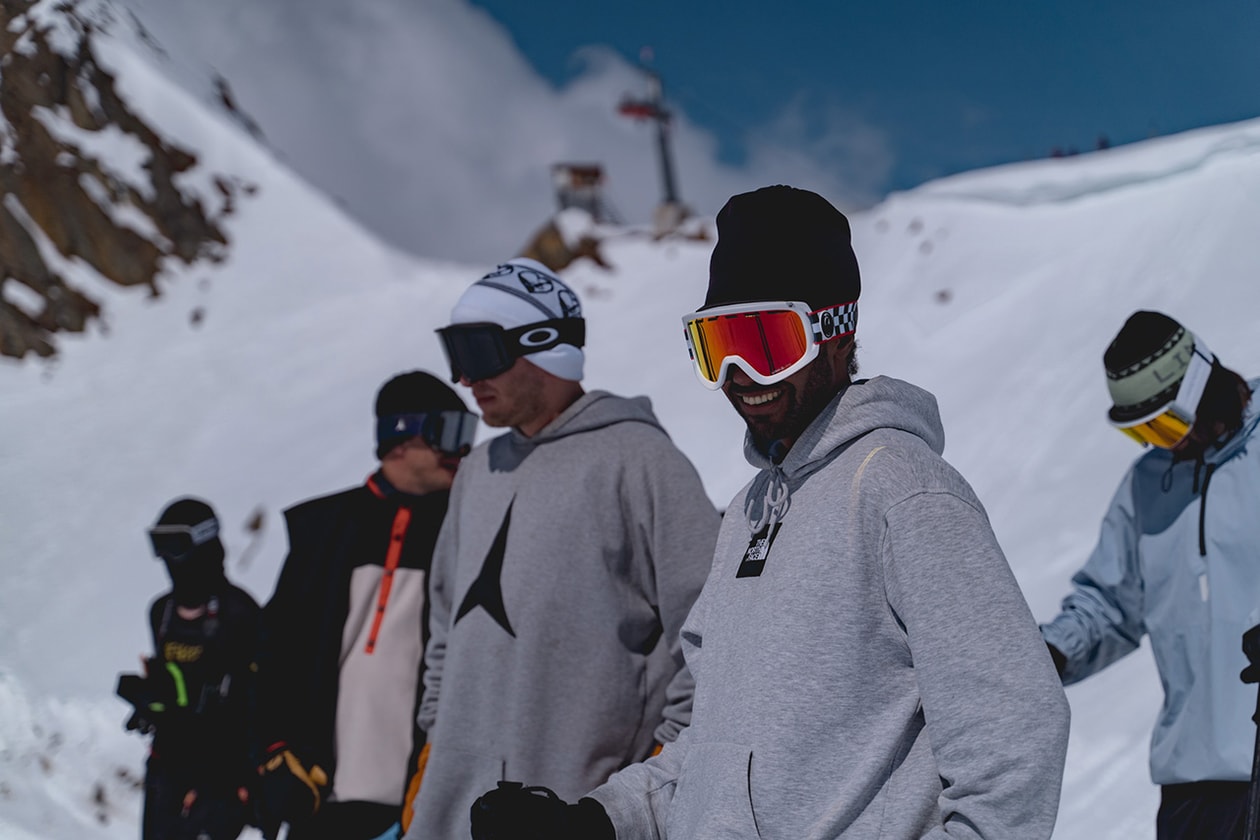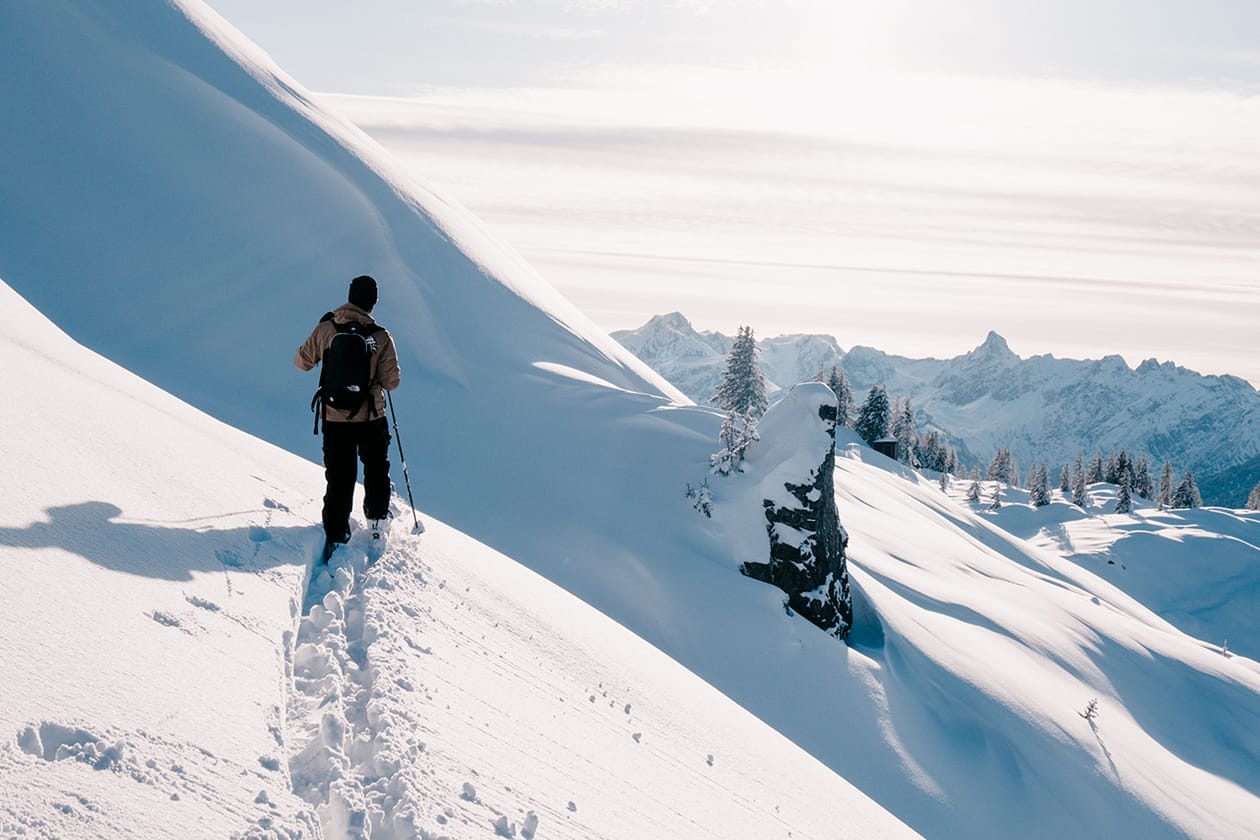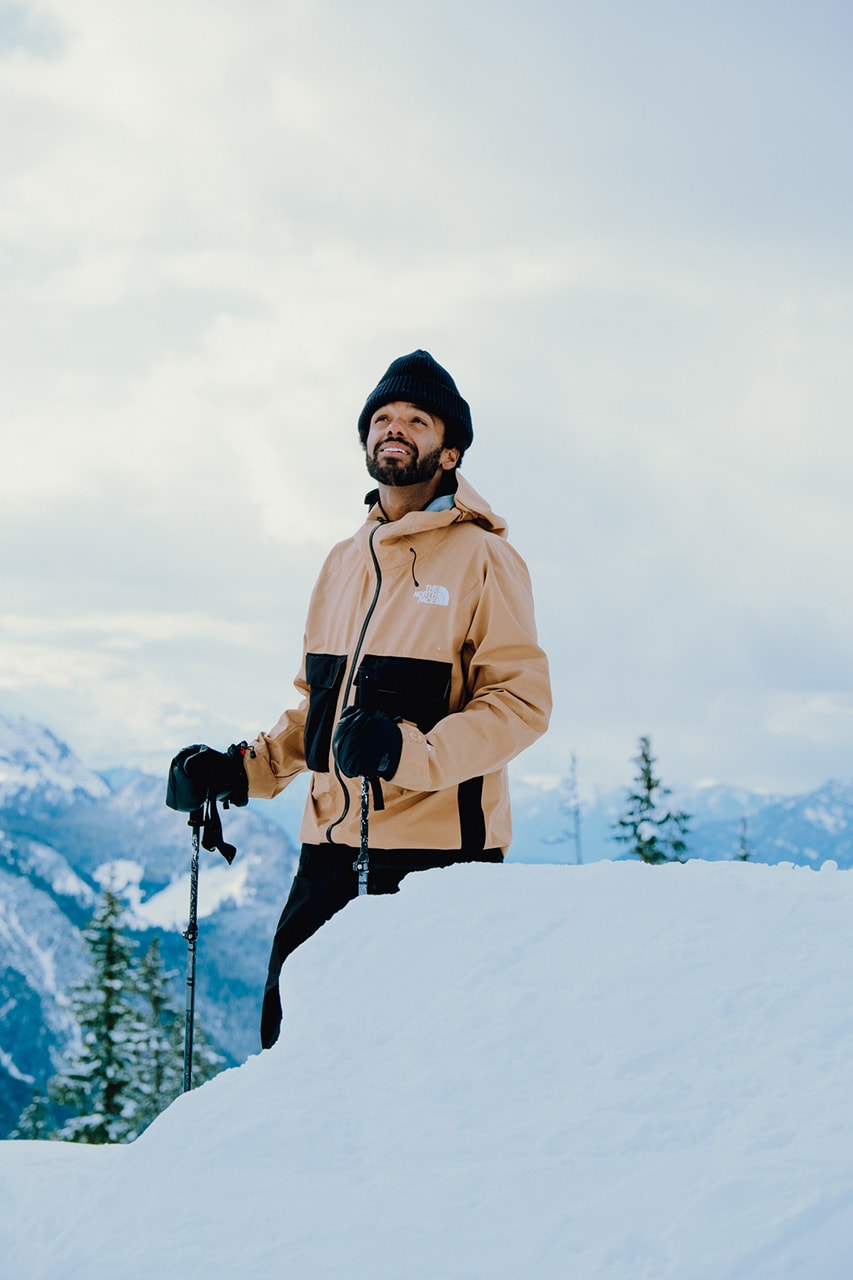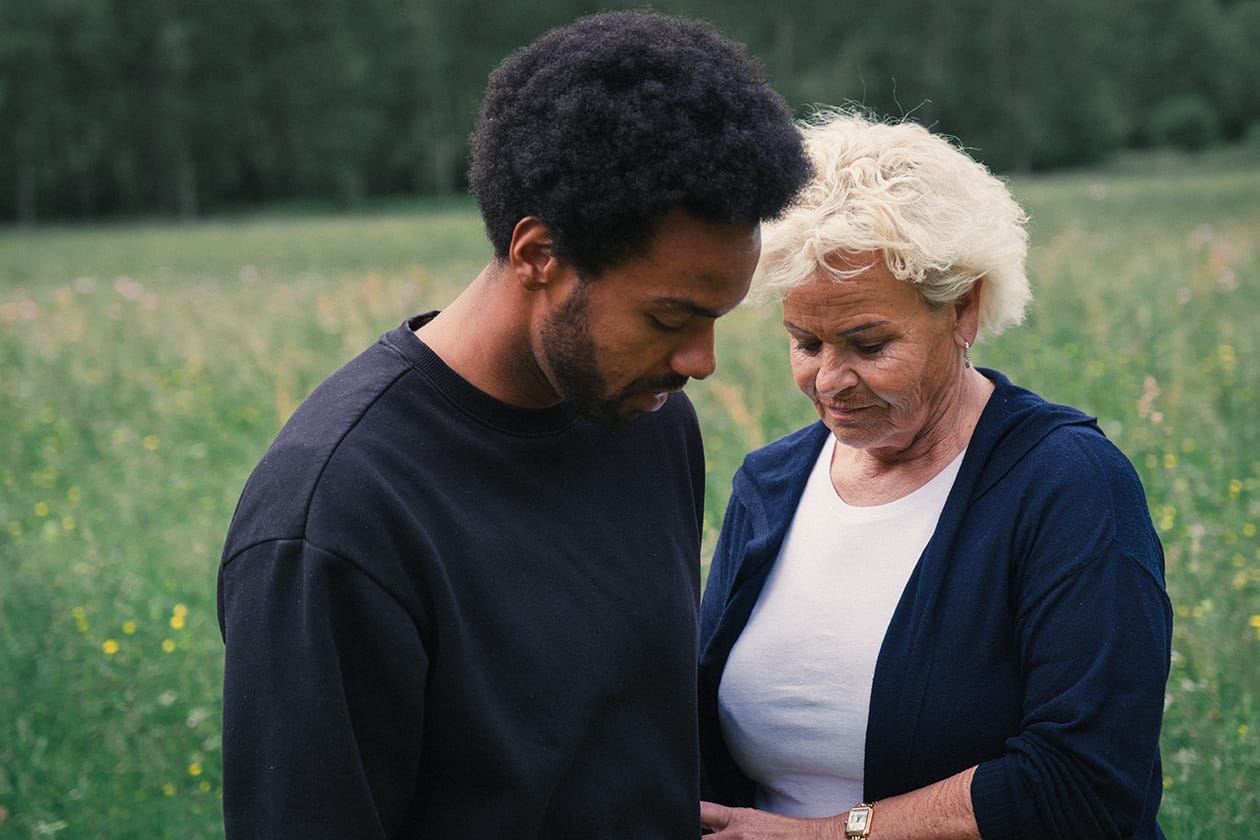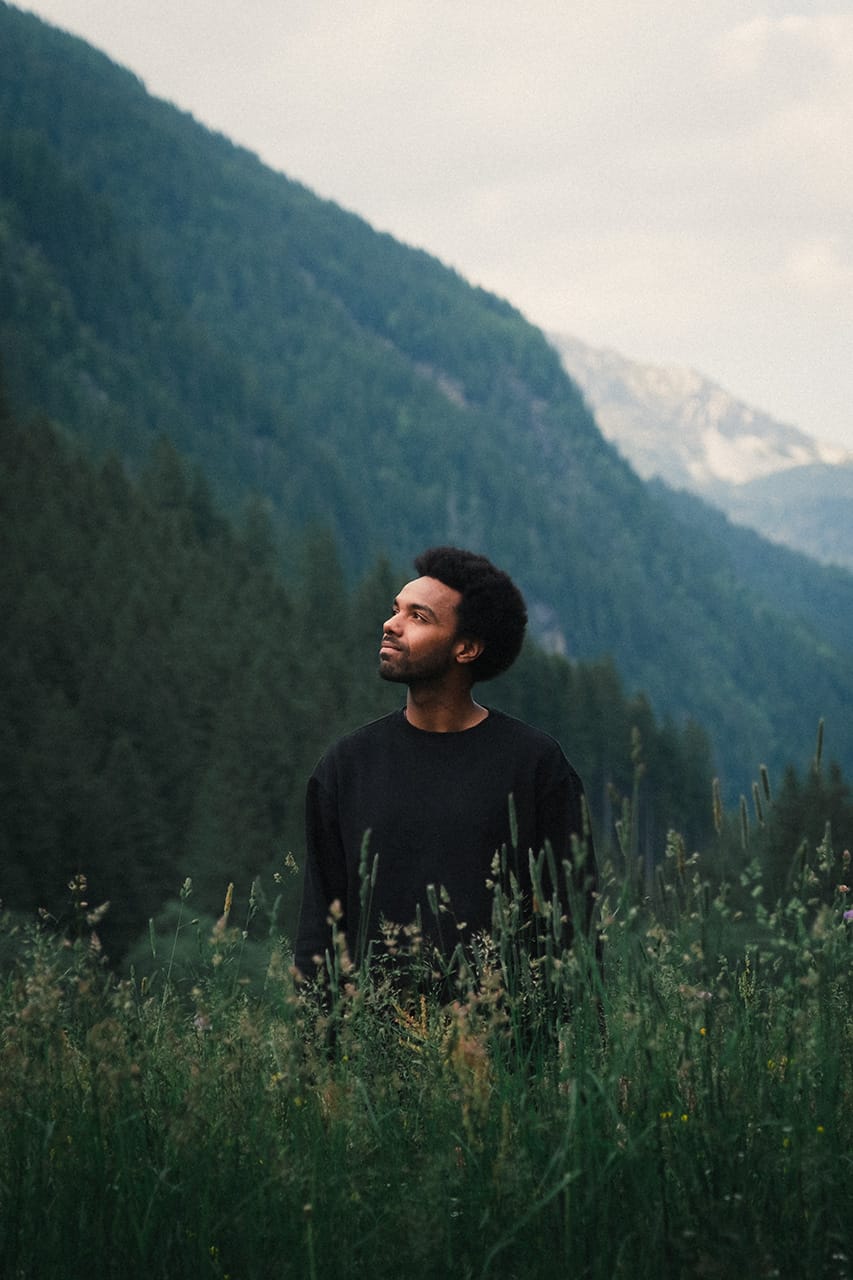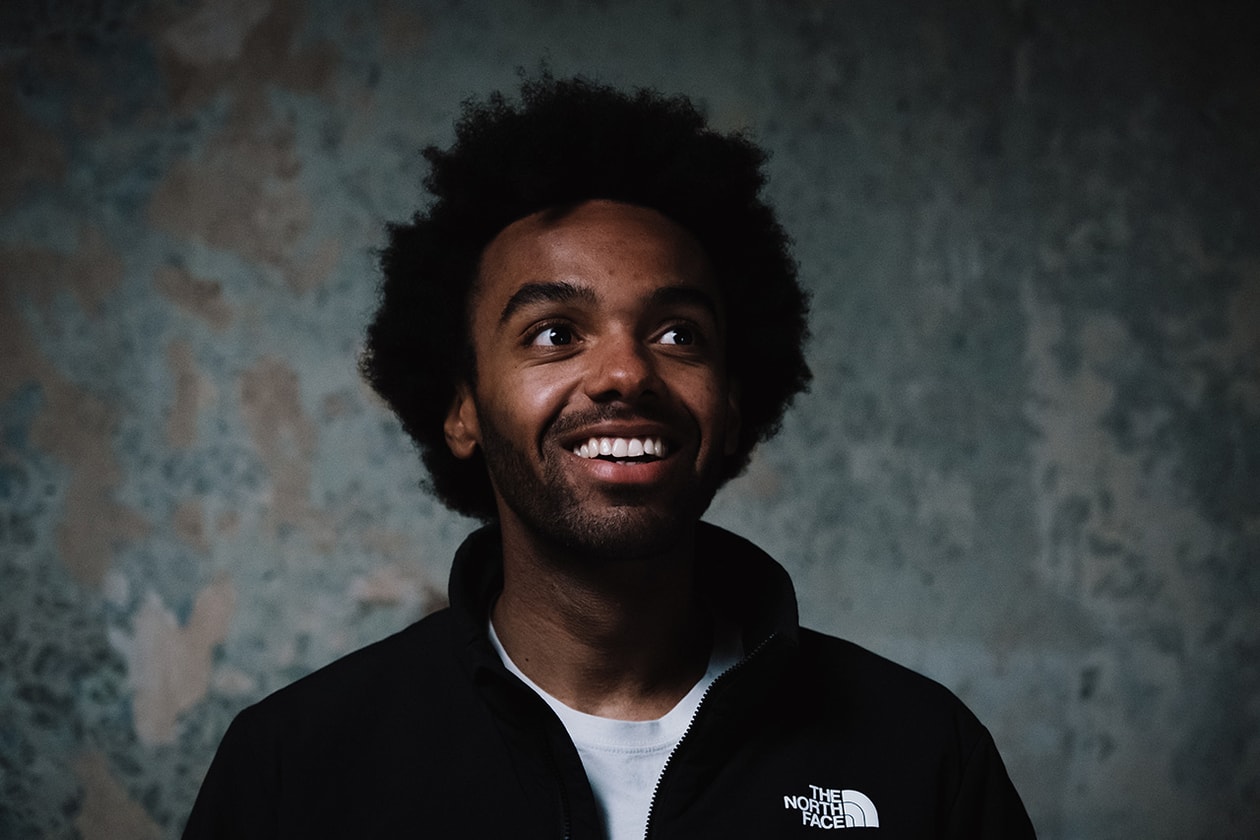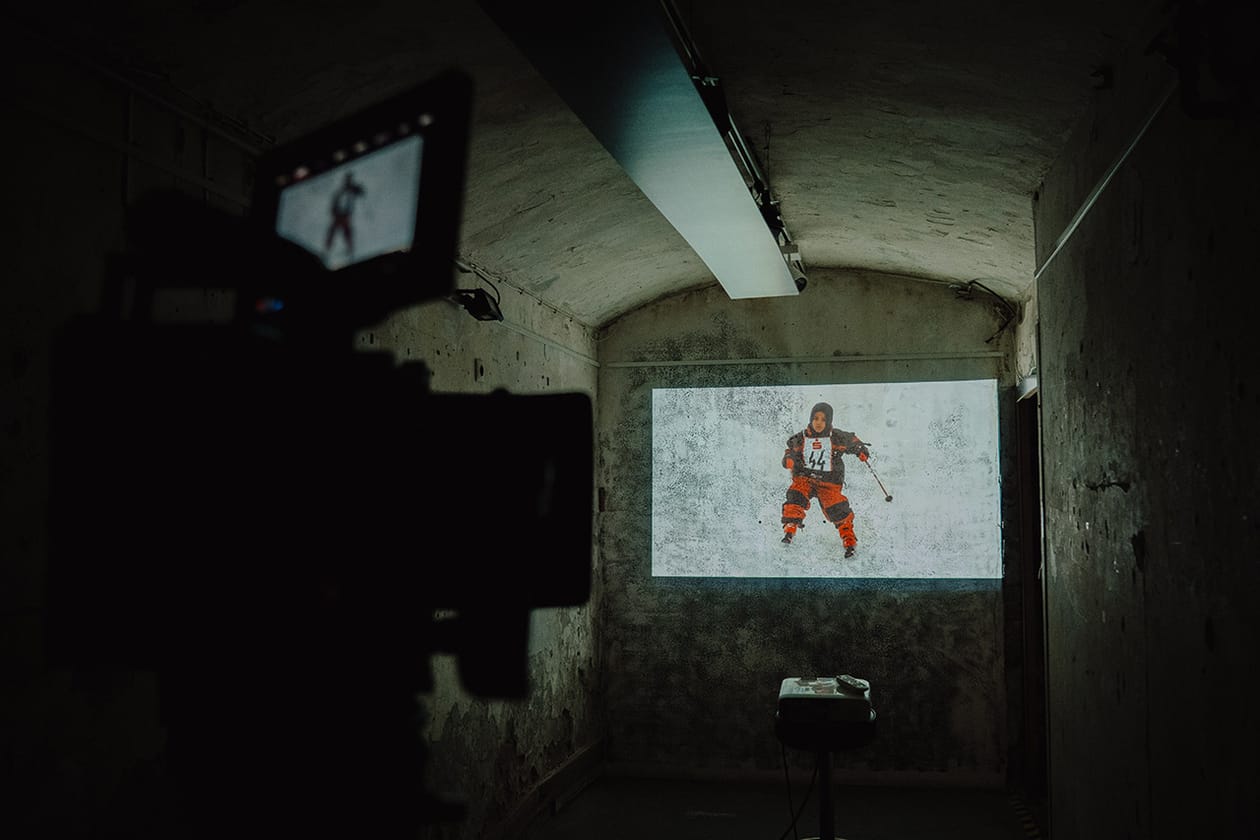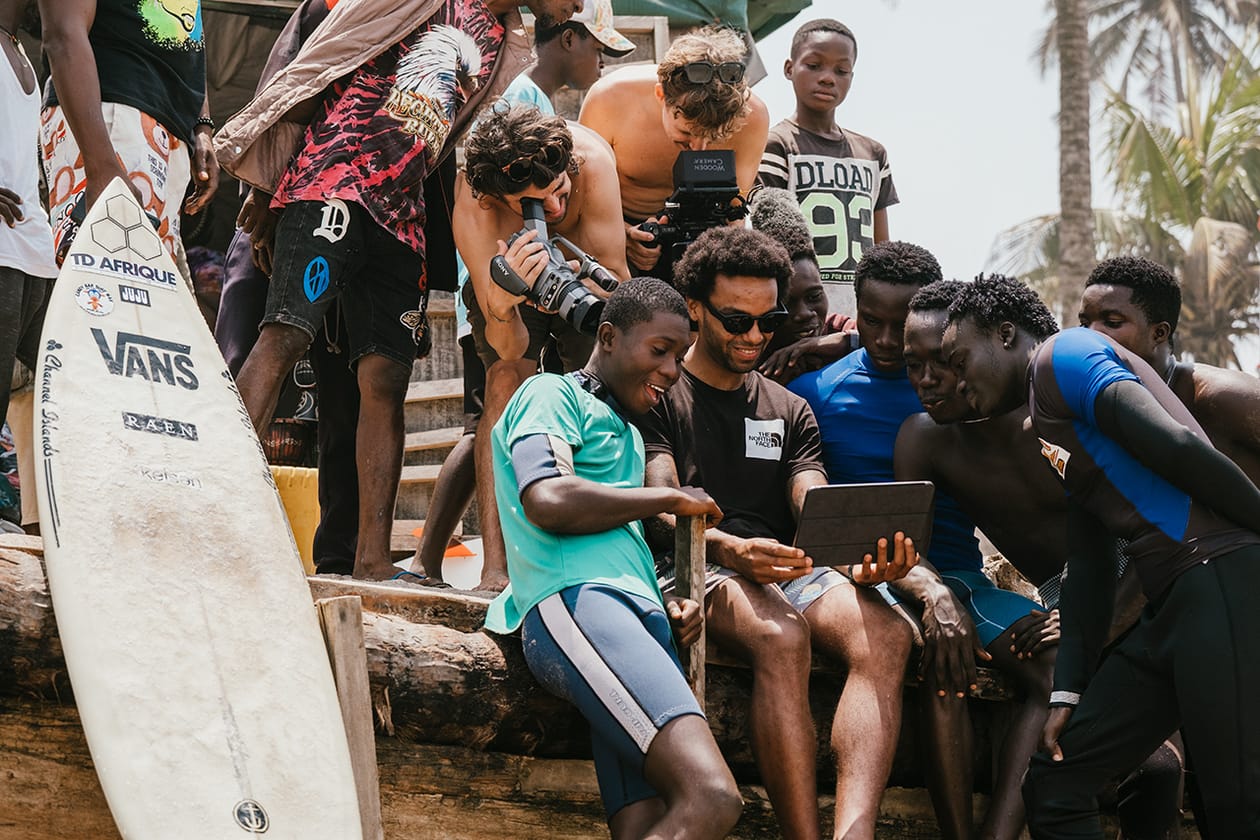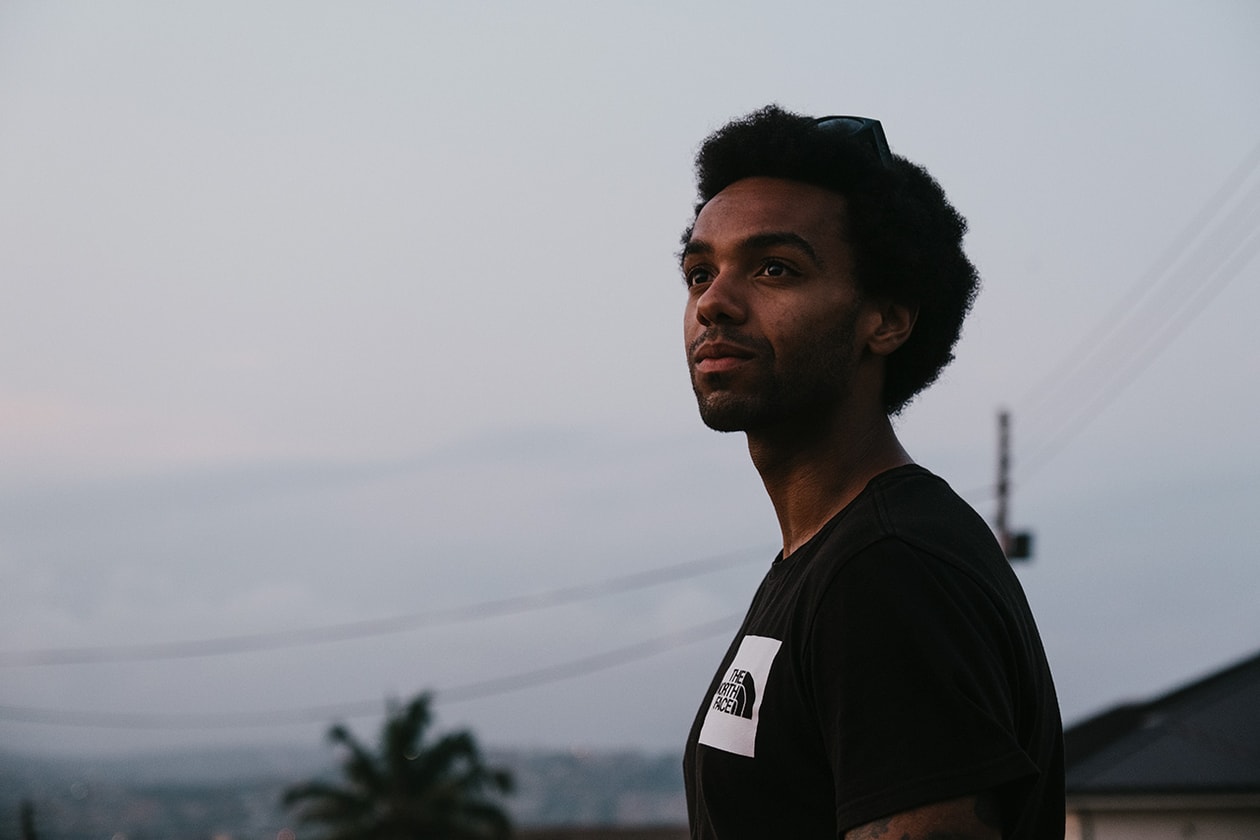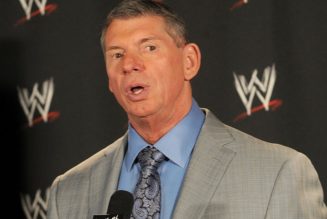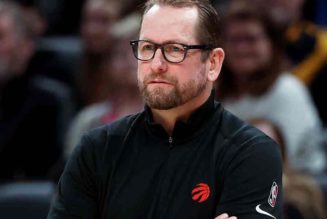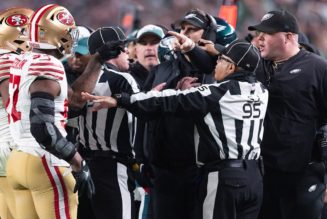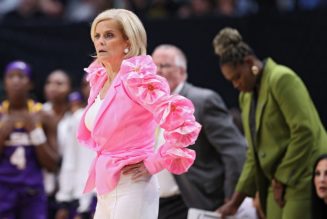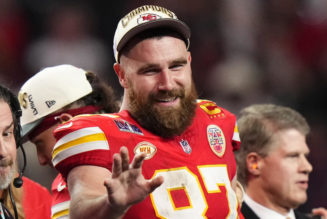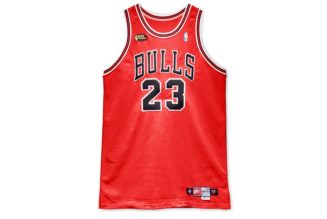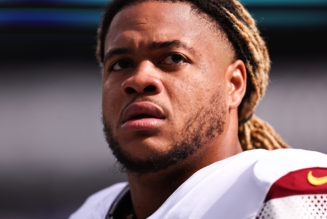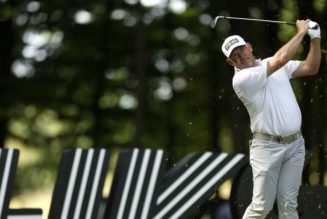Dennis Ranalter’s journey to becoming one of the most renowned freeskiers didn’t come without its obstacles. Ahead of the launch of his documentary, Descendance in partnership with The North Face, Hypebeast sits down with the athlete to discuss his journey, how the process of telling his story was therapeutic, and his most recent trip to Ghana.
A revered figure in winter sports, his ability to blend influences from a variety of extreme sports to create a unique skiing style is what garnered worldwide attention. “I was always super fascinated by skaters and tricks, and how they bring their own style,” he says. Participating in his first skiing lesson at just three years old ignited Ranalater’s passion for being in the mountains that surrounded his hometown of Stubaital, Austria. By his early teens, he had taken up all types of outdoor sports, from snowboarding to ice skating, but settled on the skis. “Where I live, everybody was into winter sports. It’s something special for me. I’d pick skiing every time because of the feeling I get from it,” he explains.
“You do it with friends and it ends with friends. That’s what makes [skiing] so important.”
“It wasn’t until I was about 14 when I was introduced to freestyle skiing,” and other than the professionals he used to watch, Ranalater’s main inspirations were his group of friends as well as older acquaintances “who were already able to do 720s°.” Frequently hitting the local slopes, he and his friends would build make-shift ramps to work on their jumps — and practice proved to make perfect when he landed his first-ever trick: a 270°. “I didn’t complete a full 360° but I landed something,” he remembers. “That hunger to learn continued to grow and I wanted to chase that incomparable feeling of accomplishment.”
Skiing is an individual sport, but it’s rarely done alone. For Ranalter, a big part of taking part is the community that it provides. “It all starts with friends,” he begins. “You do it with friends and it ends with friends. That’s what makes it so important. You’re enjoying a good time together.” However, this doesn’t take away from the escape that being in the outdoors has, so he often takes his first few runs alone to experience the fresh air and take in the landscape as its calming ambiance forms a sense of release.
Being raised in such a rural, mountainous area in Europe meant Ranalater was one of the only Black people who resided in his small town. Around the time he felt elated with landing his first trick and began to take freestyle skiing seriously, he also remembers being racially abused in the street. “It’s a bad memory,” he says. “It was in the middle of the town and the worst thing about it was no one said or did anything. Looking back, it was shocking. Seeing a child going through a hard time with no one there to help.” This expedited his ongoing journey of self-discovery and, at a young age, made him acutely aware of his identity and the struggles that accompany it.
These prejudices even extended to the slopes. “There was an older person that kicked me out of the gondola ski lift. It’s pretty rough for a 13-year-old to go through that,” he remembers. Sports are meant to be inclusive activities, open to all, but questions like: “Where are you really from?”; “Your genes aren’t made for this sport”; and “Maybe skiing isn’t for you. Have you tried football or running?” created a hostile and often inaccessible environment for Ranalter who has always viewed skiing as his safe space.
“Who says someone from Alaska can’t be the best footballer or a guy from Africa can’t be the best skier?”
The amalgamation of unsettling experiences during his formative years had a knock-on effect on his confidence which caused a rift between himself and the sport. “Sometimes I didn’t want to ski because I was scared of the reactions I’d get from other people,” he says. “But I’m really grateful for my friends during this time because I don’t think I would have ever been able to face it alone.”
Nonetheless, Ranalater’s empathetic spirit allows him to try and see the light in dark times. “I just learned from a young age to deal with problems a little differently,” he expresses. “I always try to understand the other side as well, even if it doesn’t make any sense, I try to understand why this person could feel that way.” Not one to succumb to pressure, in the face of all adversities he excelled by putting his “effort, anger and motivation into skiing” which provided him peace in dealing with any challenges. “Who says someone from Alaska can’t be the best footballer or a guy from Africa can’t be the best skier?” he exclaims. “A generation shouldn’t let their dreams die because of someone else’s ignorant opinion. It’s better to try than not just because somebody told you you’re not able to.”
“I wanted to make Desendance for the kids who are scared about not fitting in and don’t feel welcome because they look different.”
Hypebeast: Why was it important for you to tell your story?
Ranalter: I felt that not being 100% Austrian or 100% Ghanaian meant I found myself asking “So what am I?” I needed that question answered. I saw myself as a little kid when I thought that if there was someone who did what I did but also looked like me, maybe it’d be easier.
I wanted to make Desendance for the kids who are scared about not fitting in and don’t feel welcome because they look different. It’s sad because you lose so much variety and greatness. It’s really important to get more people into the things they want to do. Sport is for everyone and everyone is allowed to be a part of everything.
How did the partnership with The North Face come about?
It was my first season with The North Face and every athlete has the chance to make a pitch. The slogan to work around was “Never Stop Exploring.” That slogan meant a lot to me and I was already in the process of searching for my real self so I started to write about my experiences. “Never Stop Exploring” meant meeting my family in Africa, finding the real me, and getting to know my heritage.
After I finished writing and sent it over, that was it. Actually writing it all down made me forget about winning. It became a sort of therapy for me. My mind was so far away from it because there were so many great people on the roster. I woke up at 5 a.m. one day, checked my phone, and saw the email about the winners of the expedition program and there was my name! I fell back asleep and when I woke up a few hours later, I thought I had dreamt it.
What do you want people to take away from the documentary?
Inspiration and change.
How was your trip to Ghana? And how did you process going there for the first time?
I hadn’t had contact with my father for a long time. In the process of writing my pitch, I didn’t really know what was going to happen with it so I contacted him to ask about details like where my grandparents were from, what the area looks like, and that there might be a possibility we could go one day. It reconnected me with my dad. When I won, I asked him if he would be down to come with me and visit our family, and he agreed.
When it came to it, I was so nervous, I didn’t know what would happen. But when I landed, it all changed. Usually, when you go away, it feels like a holiday, but I can remember when I got off the plane, it felt like home. It was like I’d been there before. It’s a feeling I can’t describe. I was there for two weeks but it felt like two days. Meeting my grandmother was a very special experience for me, and that was one of the most beautiful days of my life.
How did your dad react to you telling him you’ll be going to his hometown?
It made him very happy. He waited for a long time for me to do this, but never stressed me out in any way to make the trip. Seeing his house, our family, and where they all grew up was really special. From his point of view, he knew I probably just needed to take my time, and when the day comes and the time is right, then it’ll happen. And I’m lucky it did.
“Don’t value other people’s opinions more than yourself, and most importantly, know who you are and where you come from.”
Did you ever think about how your life would’ve been different if you had been raised there instead of in Austria?
I really wondered what I’d do if I was born in Accra. Maybe I would have been a skater. I feel that within each person lies the same passion, the same ways of thinking and maybe the motivation and hunger would be put into something different. I have always had a love for extreme sports from a really early age so I’m pretty sure I would’ve done something with sports. However, maybe things don’t fall into place without the other aspects so I might have ended up in an office. Who knows?
What were the main takeaways for yourself when creating the documentary?
Just being proud and believing in myself. Realizing that you shouldn’t get to a point where somebody’s stopping you from doing what you like. Don’t value other people’s opinions more than yourself, and most importantly, know who you are and where you come from.
How do you see yourself channeling your energy in the future?
I’m very competitive with myself, and I always want to grow as a person. I also want to keep learning, keep getting better, and be open to new ways of skiing. I think as long as you’re open, you’ll always move forward and end up where you’re supposed to be. I want to keep working and use this opportunity to do positive things, especially for the younger generation.
